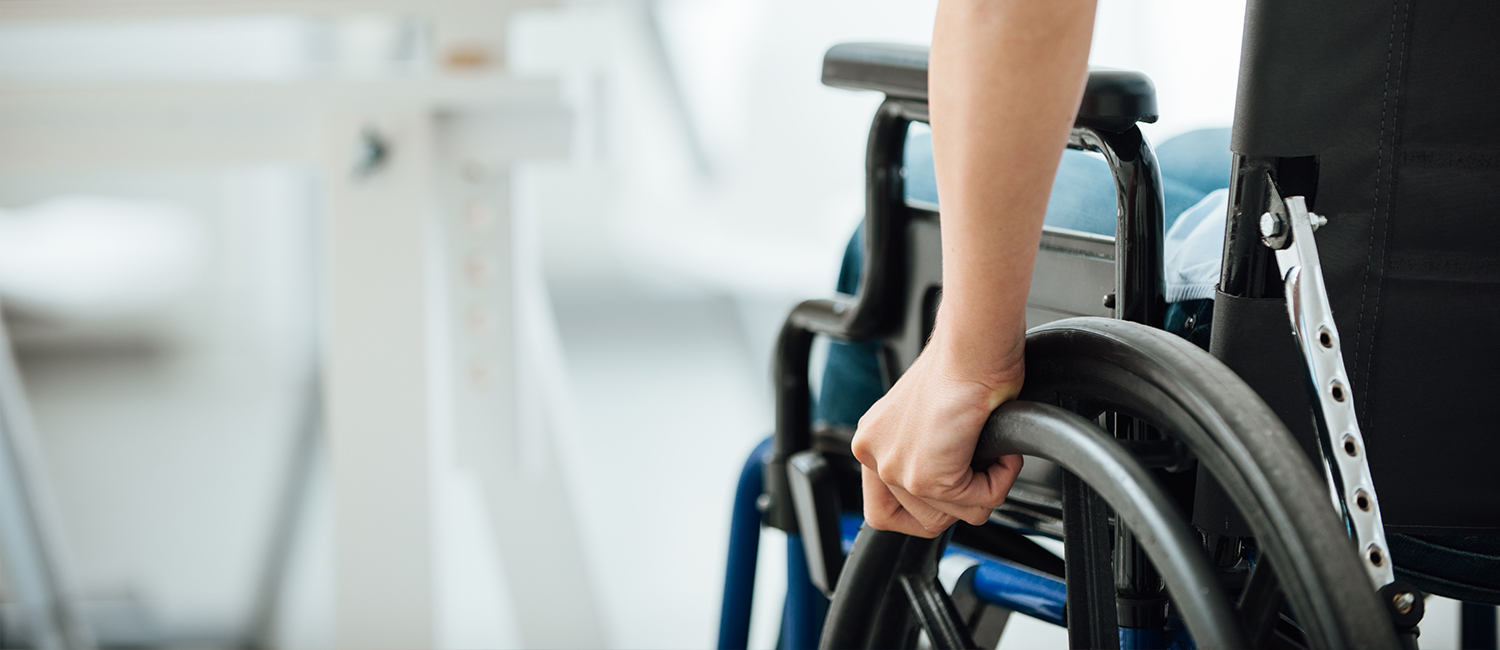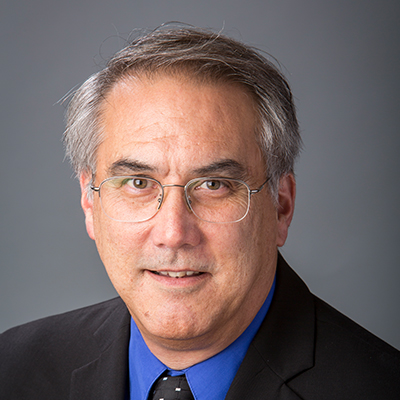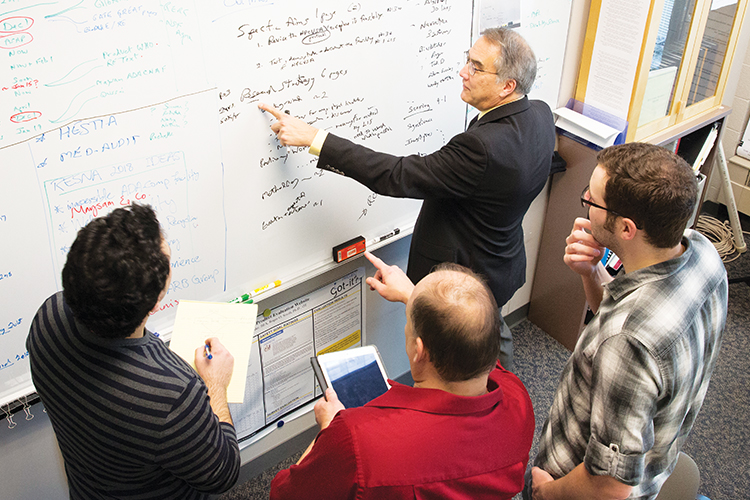
Making anything possible

In grade school, Roger O. Smith’s best friend was on the autism spectrum, and he couldn’t tolerate the scratchiness of new clothes. To help, Smith would wear the clothes first until they had softened.
That blend of compassion and practicality has characterized the career of Smith, a UWM professor of occupational science and technology in the College of Health Sciences. And his lifelong commitment to helping people with disabilities mirrors UWM’s even longer commitment to the same goal.
2018 marks the 100th anniversary of UWM’s occupational therapy training program, which began at Milwaukee-Downer College. It became one of the world’s first occupational therapy baccalaureate programs.
And in 2017, Smith was at the center of another landmark anniversary. During the American Occupational Therapy Association’s centennial convention, he presented the Eleanor Clarke Slagle lecture, the association’s most prestigious honor, reserved for those who have made “lasting contributions to the profession.”
Smith’s work has touched on everything from making computer keyboards more accessible for people whose hands tremble to making UWM’s commencement ceremonies inclusive for graduates with mobility challenges.
“He’s a source of energy, ethics and inspiration,” says Ginny Stoffel, a UWM occupational science and technology professor who’s a past AOTA president. “He thinks anything is possible.”

Smith is director of UWM’s Rehabilitation Research Design & Disability Center – colorfully abbreviated R2D2 – which conducts research and instruction related to technology and disability. That includes developing apps to assist people with disabilities. Smith is working on two of those now.
One app, called HESTIA, evaluates people’s home environment, with the goal of helping them live there longer rather than at a care facility. The other app rates home medical equipment to guide shoppers with disabilities. Its value becomes clear when you consider the many thousands of medical devices that exist. “If someone with a disability goes to a pharmacy to buy a blood pressure monitor, which one do they buy if they’re blind or if they’re deaf?” Smith explains. “What if they have severe arthritis or hand function problems and can’t push buttons?”
Such things sound simple, but they can make a big difference in people’s lives. And making technology accessible to everyone has always been one of Smith’s passions.
Early in his career, while at UW-Madison, Smith was a main contributor to making computer keyboards more accessible. He helped develop the concept of “bounce keys” to assist people with tremor, and it’s now a standard feature of Windows operating systems.
Today, Smith is a big reason UWM is on track to become one of the first assistive technology programs accredited by the Rehabilitation Engineering and Assistive Technology Society of North America. “There’s a lot happening in the field right now,” says Smith, who is president of that organization, “and we’re on the forefront.”